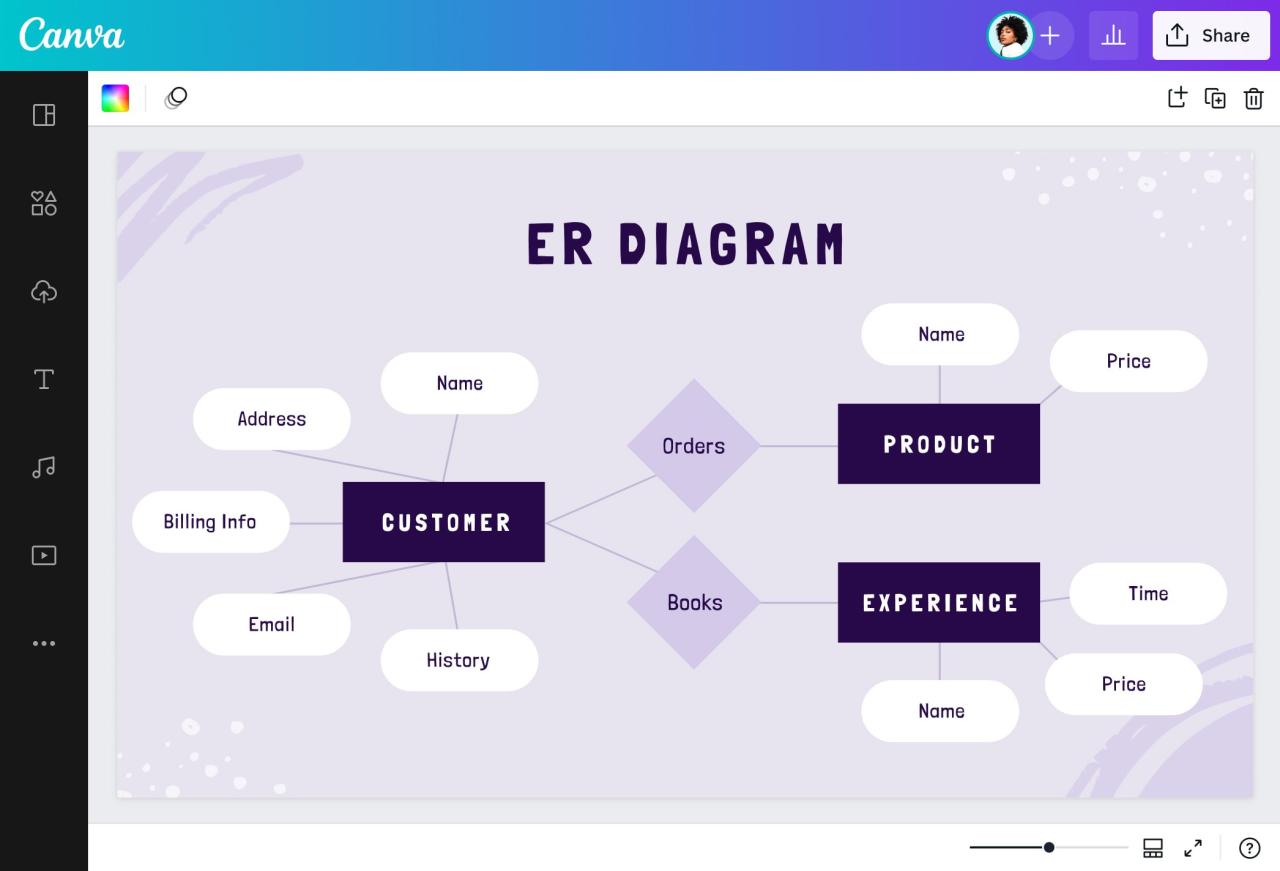Mastering the art of rhetorical questions can significantly enhance communication effectiveness. Beyond simple inquiries, these carefully crafted questions can captivate audiences, spark engagement, and propel your message to new heights. This guide delves into the nuances of rhetorical questions, exploring their impact on listeners and providing practical strategies for their effective application in various contexts.
From understanding their fundamental structure and purpose to analyzing their psychological impact, we will navigate the intricate world of rhetorical questions. Learn how to craft compelling questions that resonate with your audience, avoiding common pitfalls and maximizing their persuasive potential. This comprehensive resource equips you with the tools to transform your presentations, speeches, and writing into truly engaging experiences.
Understanding Rhetorical Questions

Rhetorical questions are powerful tools in communication, often used to engage listeners and subtly guide their thinking. They differ from standard questions seeking information; instead, they aim to evoke a response or reinforce a point. This section delves into the intricacies of rhetorical questions, exploring their various forms and how they contribute to persuasive communication.Rhetorical questions are not meant to be answered literally.
Their purpose is to stimulate thought, encourage agreement, or create a desired emotional response in the audience. Unlike a straightforward question, a rhetorical question is posed to make a statement or highlight a point, not to elicit an answer.
Definition and Purpose
Rhetorical questions serve a distinct purpose in communication. They are statements disguised as questions, designed to emphasize a point, provoke thought, or subtly persuade the audience. They are an effective way to create engagement and influence without explicitly stating a conclusion.
Distinguishing Rhetorical Questions from Actual Questions
The key difference between rhetorical questions and actual questions lies in their intended purpose. Actual questions seek information, whereas rhetorical questions aim to make a point, challenge assumptions, or create a desired emotional response. This subtle distinction is crucial for understanding how rhetorical questions function in persuasive communication.
Types of Rhetorical Questions
Rhetorical questions encompass various forms, each with a specific purpose. They can be categorized based on their function:
- Questions of Emphasis: These questions are used to highlight a particular point or idea, often with strong emotional implications. For example, “Are we not better than this?” underscores the speaker’s belief that the current situation is unacceptable.
- Questions of Challenge: These questions directly challenge the listener’s assumptions or beliefs. “How can we justify these actions?” prompts the audience to critically examine the speaker’s claims.
- Questions of Provocation: These questions aim to stir emotional responses, often challenging the listener’s sense of morality or values. “Would you stand by and watch as injustice prevails?” is an example of a question designed to evoke a strong emotional response.
Comparison with Other Persuasive Techniques
Rhetorical questions differ from other persuasive techniques in their approach. While appeals to logic or emotion directly state a claim, rhetorical questions subtly guide the audience towards a particular viewpoint. This subtle approach can be more effective in certain situations.
| Technique | Rhetorical Question | Appeal to Logic | Appeal to Emotion |
|---|---|---|---|
| Purpose | Engage listeners, emphasize points, subtly persuade | Present facts, evidence, and reasoning | Evoke feelings, create empathy |
| Approach | Posing a question without expecting a response | Providing logical arguments and supporting evidence | Using emotional language and imagery |
| Effect | Engaging and thought-provoking, often leading to agreement | Persuading through rational argumentation | Persuading through emotional connection |
Crafting Effective Rhetorical Questions

Rhetorical questions, unlike their literal counterparts, are not designed to elicit an answer. Instead, they serve as powerful tools for engaging listeners, prompting reflection, and guiding their understanding of a particular viewpoint. They can be highly effective when skillfully integrated into speeches, presentations, or written communication. Understanding the nuances of crafting effective rhetorical questions is key to maximizing their impact.Crafting effective rhetorical questions involves more than simply posing a question.
It necessitates a thoughtful understanding of the audience, the context, and the desired effect. By strategically selecting the right questions and phrasing them carefully, speakers and writers can elevate their communication, prompting deeper engagement and a more profound understanding of their message.
Key Characteristics of Engaging Rhetorical Questions
Effective rhetorical questions possess several key characteristics that contribute to their impact on listeners. They often highlight a point, stimulate critical thinking, and create a sense of shared understanding. A well-crafted rhetorical question can resonate with the audience, making them feel personally invested in the subject matter. These characteristics include:
- Relevance to the Audience: A key element of effective rhetorical questions is their relevance to the audience. Questions that directly address the concerns, interests, or experiences of the listeners are more likely to capture their attention and foster a sense of connection.
- Clarity and Precision: The wording of a rhetorical question should be clear and precise, avoiding ambiguity or vagueness. Vague or overly complex phrasing can hinder understanding and diminish the impact of the question.
- Emotional Resonance: Rhetorical questions can evoke strong emotions in listeners. By tapping into their values, beliefs, or experiences, questions can create a powerful emotional connection, making the message more memorable and impactful.
- Thought-Provoking Nature: A truly effective rhetorical question encourages the audience to think critically about the issue at hand. They should spark reflection and contemplation, leading listeners to consider different perspectives.
Tailoring Rhetorical Questions to the Audience
The effectiveness of a rhetorical question is significantly influenced by its alignment with the specific audience. Understanding the audience’s background, knowledge level, and values is crucial for crafting questions that resonate with them. Questions that are too complex or abstract for the audience may fail to achieve the desired effect.
- Understanding the Audience’s Perspective: Before crafting rhetorical questions, it is essential to thoroughly understand the audience’s perspective. This involves considering their knowledge level, values, and potential biases. By taking into account these factors, questions can be formulated to connect with the audience on a personal level.
- Adjusting Complexity Based on Knowledge Level: Questions should be adjusted to the audience’s level of knowledge. Overly complex questions might alienate the audience, while questions that are too simple may fail to stimulate deeper thought. Careful consideration of the audience’s knowledge base is critical.
- Addressing Potential Concerns: Anticipating and addressing potential concerns or questions within the audience is another important aspect of tailoring questions. By preemptively addressing concerns, speakers can demonstrate a deep understanding of the audience’s perspectives and enhance their credibility.
Examples of Rhetorical Questions in Different Contexts
Rhetorical questions are employed in various contexts to achieve different communicative goals. Their effectiveness depends on the specific context and the desired outcome.
| Context | Rhetorical Question | Analysis of Effectiveness |
|---|---|---|
| Motivational Speech | “What if we dared to dream bigger?” | Sparks a sense of possibility and encourages ambition. |
| Persuasive Argument | “Is it not clear that this policy will ultimately benefit all stakeholders?” | Strengthens the argument by implicitly challenging the opposition. |
| Educational Presentation | “How might we approach this problem from a different angle?” | Encourages critical thinking and exploration of alternative solutions. |
| Creative Writing | “What whispers echo through the silent halls?” | Creates an evocative atmosphere and encourages the reader’s imagination. |
Rhetorical Questions in Different Communication Styles
The use of rhetorical questions can adapt to various communication styles, ranging from formal to informal, and persuasive to informative. The appropriateness of a rhetorical question depends on the specific communication style.
- Formal Communication: In formal settings, rhetorical questions should be concise, direct, and well-reasoned. They should serve to reinforce the speaker’s point rather than to engage in playful banter.
- Informal Communication: In informal settings, rhetorical questions can be more conversational and engaging. They can be used to draw the audience into a discussion or to create a sense of shared understanding.
- Persuasive Communication: Rhetorical questions are powerful tools in persuasive communication. They can be used to challenge assumptions, highlight contradictions, and ultimately sway the audience toward a particular viewpoint.
Impact of Rhetorical Questions on Listeners
Rhetorical questions, though posed as queries, are powerful tools in communication. They engage listeners on a deeper level than straightforward statements. Their impact extends beyond simply prompting a response; they cultivate critical thinking, evoke emotional engagement, and foster a sense of shared understanding. By understanding the psychological mechanisms at play, communicators can leverage these questions to significantly enhance the effectiveness of their message.Effective use of rhetorical questions fosters a dynamic exchange between the speaker and the audience.
Listeners are not passive recipients of information but active participants in the conversation, subtly encouraged to reflect on the speaker’s points and consider their own perspectives. This participatory nature of rhetorical questions significantly increases listener engagement.
Psychological Impact on Listeners
Rhetorical questions tap into cognitive processes, prompting listeners to mentally formulate answers. This active engagement elevates the listener’s cognitive involvement and increases retention of information. The very act of considering a response strengthens the connection between the listener and the message.
Influence on Listener Engagement and Motivation
The active participation prompted by rhetorical questions enhances listener engagement. By prompting reflection and consideration, speakers invite listeners into a more active and thoughtful relationship with the material. This increased engagement directly correlates with a heightened level of listener motivation to understand and process the information.
Creating Shared Understanding and Connection
Rhetorical questions can effectively build a sense of shared understanding and connection with the audience. By posing questions that resonate with the audience’s experiences or values, the speaker creates a feeling of empathy and shared perspective. This sense of connection is crucial for building trust and rapport with the listeners.
Impact of Different Types of Rhetorical Questions
Different types of rhetorical questions evoke varied responses. Questions aimed at stimulating thought, for instance, encourage critical thinking and intellectual exploration. Questions that tap into emotional responses, however, can evoke stronger emotional engagement and a deeper connection with the audience.
Stimulating Critical Thinking and Audience Participation
Rhetorical questions can be strategically employed to promote critical thinking and audience participation. Questions that challenge assumptions or invite the audience to consider alternative viewpoints are particularly effective. These types of questions, such as “What are the potential drawbacks of this approach?”, encourage the audience to engage with the information on a deeper level.Examples of such questions include: “If we don’t act now, what will be the consequences?” or “Given the current circumstances, what innovative solutions can we consider?”.
These questions stimulate active listening, critical analysis, and the generation of thoughtful responses.
Using Rhetorical Questions in Different Contexts
Rhetorical questions, though seemingly simple, are powerful tools capable of significantly enhancing communication in various settings. They can pique interest, encourage active listening, and subtly guide the audience towards a desired perspective. Their effectiveness hinges on careful consideration of the context and the audience being addressed. This section delves into strategies for deploying rhetorical questions in speeches, persuasive writing, and various media formats, emphasizing how to craft memorable and impactful interactions.Understanding the specific context in which a rhetorical question is used is crucial.
The impact of a question depends heavily on the audience’s background knowledge and expectations. A well-placed rhetorical question can transform a mundane presentation into a thought-provoking engagement. The following sections will illustrate how to tailor rhetorical questions to different contexts for optimal effect.
Strategies for Incorporating Rhetorical Questions into Speeches
Effective incorporation of rhetorical questions in speeches requires a thoughtful approach. They should not be randomly scattered but rather strategically integrated to enhance the flow and engagement of the speech. Questions should align with the overall message and purpose, subtly guiding the audience towards a specific understanding or perspective. The speaker should pause momentarily after posing the question to allow for reflection and anticipation.
- Positioning Rhetorical Questions Strategically: Placing questions at the beginning of a new section or argument can grab the audience’s attention and create anticipation. Asking a question at the end of a point can reinforce the speaker’s message and leave a lasting impression. By carefully choosing the placement, speakers can maximize the impact of their rhetorical questions.
- Connecting Questions to the Main Argument: Rhetorical questions should be directly related to the speaker’s main points and arguments. This ensures the questions do not detract from the speech’s overall message but rather contribute to its development. Weaving questions seamlessly into the flow of the presentation makes the speech more engaging and memorable.
- Considering the Audience’s Background Knowledge: Speakers must tailor the complexity and nature of the questions to the audience’s knowledge level. Questions that are too simple might appear dismissive, while those that are overly complex might confuse the audience. A well-considered approach that accounts for the audience’s familiarity with the subject matter is key to successful rhetorical question implementation.
Using Rhetorical Questions in Persuasive Writing
In persuasive writing, rhetorical questions can be used to engage the reader and subtly guide them towards a specific conclusion. By posing thought-provoking questions, writers can encourage critical thinking and subtly influence the reader’s perspective. Effective use of rhetorical questions in persuasive writing creates a more dynamic and engaging reading experience.
- Creating a Sense of Inquiry: Well-crafted rhetorical questions can create a sense of intellectual curiosity in the reader, making them actively participate in the argument presented. This engagement is essential for persuasive writing, where the aim is to influence the reader’s understanding and perspective.
- Highlighting Key Arguments: Rhetorical questions can be used to highlight important arguments and ideas within a persuasive piece. By posing questions that relate to the core message, writers can subtly guide the reader towards a particular conclusion without being overly assertive or preachy.
- Enhancing the Flow of Arguments: Strategic placement of rhetorical questions can enhance the overall flow of the persuasive piece. They can transition between different sections of the argument, create a sense of logical progression, and effectively connect different ideas.
Examples of Rhetorical Questions in Different Forms of Media
Rhetorical questions appear in various forms of media, from interviews to debates. They are frequently used to elicit responses, challenge assumptions, or emphasize key points. Their presence in different contexts adds a layer of engagement and dynamism to the content.
- Interviews: In interviews, rhetorical questions can be used to steer the conversation towards specific topics or to encourage interviewees to elaborate on their perspectives. A skilled interviewer might use rhetorical questions to challenge or highlight inconsistencies in the interviewee’s statements.
- Debates: During debates, rhetorical questions are often used to challenge opposing viewpoints or highlight weaknesses in the opposing argument. This can effectively create a sense of doubt and encourage the audience to question the validity of the opposing arguments.
Creating a Memorable Impact with Rhetorical Questions
Crafting rhetorical questions that leave a lasting impression involves more than simply posing a question. The impact hinges on several key factors, including clarity, relevance, and delivery. Careful consideration of these factors ensures that the questions resonate with the audience and leave a lasting impression.
- Clarity and Precision: Questions should be clear and concise, avoiding ambiguity or unnecessary jargon. This clarity allows the audience to understand the intended meaning and focus on the core message.
- Relevance to the Context: Questions should be directly relevant to the current discussion or topic. A lack of relevance can detract from the overall impact of the rhetorical question.
- Impactful Delivery: The delivery of the rhetorical question is as important as the question itself. A confident and engaging delivery style can significantly enhance the impact and memorability of the question.
Strategies for Using Rhetorical Questions in Different Presentation Formats
The table below Artikels strategies for incorporating rhetorical questions into various presentation formats. These strategies emphasize tailoring the questions to the specific format and audience.
| Presentation Format | Strategies |
|---|---|
| Speeches | Strategically place questions at the beginning or end of sections, connecting them to the main argument. |
| Persuasive Writing | Use questions to create a sense of inquiry, highlight key arguments, and enhance the flow of arguments. |
| Interviews | Use questions to steer the conversation, challenge assumptions, or encourage elaboration. |
| Debates | Use questions to challenge opposing viewpoints, highlight weaknesses, and create doubt. |
Avoiding Common Pitfalls in Rhetorical Question Use

Rhetorical questions, when employed effectively, can significantly enhance communication by engaging the audience and prompting thoughtful consideration. However, misuse can lead to a disconnect, rendering the questions ineffective or even counterproductive. This section will delve into common pitfalls and provide strategies for crafting impactful and meaningful rhetorical questions.Employing rhetorical questions requires careful consideration of the audience and context. A poorly phrased question can undermine the speaker’s credibility and diminish the overall message.
Understanding these pitfalls is crucial for maximizing the impact of these powerful tools.
Identifying Ineffective Rhetorical Questions
Understanding the nuances of rhetorical questions is key to avoiding common mistakes. Many rhetorical questions fail due to their simplistic nature, predictability, or lack of genuine engagement with the audience. The questions must not only prompt thought but also be tailored to the specific audience and context.
- Overly Simple or Predictable Questions: Frequently, rhetorical questions mirror the very response they are designed to elicit. For example, “Isn’t it important to be respectful?” is easily answered with a simple “yes,” and fails to foster deeper engagement or stimulate critical thinking. The audience anticipates the answer and the question loses its impact.
- Questions that Lack a Clear Connection to the Argument: Rhetorical questions must contribute to the overall argument, providing supporting evidence or a logical progression. Questions that seem out of place or unrelated to the main point dilute the intended message and confuse the audience. A question about the importance of kindness, without any subsequent connection to the argument’s main theme, is unproductive.
- Insincere or Manipulative Questions: Questions designed to manipulate the audience or appear insincere diminish the speaker’s credibility. These questions are often perceived as attempts to browbeat the audience rather than engage them in thoughtful discussion. An example would be a question posed to elicit a specific emotional response without any basis in the argument.
- Questions that are Too Broad or Ambiguous: Vague or open-ended rhetorical questions can lead to confusion. The intended answer is unclear, and the question fails to achieve the desired impact. Questions like “What is the meaning of life?” are often too broad and philosophical, making them ineffective in a specific argumentative context.
Examples of Poorly Constructed Rhetorical Questions
Examining poorly constructed examples can illuminate the pitfalls to be avoided. Understanding why these questions fail is crucial for crafting effective rhetorical questions.
- Example 1: “Don’t we all want a better future?” This question is predictable and lacks depth. The audience anticipates the affirmative answer, leading to a lack of engagement. It fails to foster deeper reflection on the topic.
- Example 2: “Isn’t it obvious that this is the best solution?” This question presents a judgment without justification. It does not provide supporting evidence and could be perceived as condescending or arrogant.
- Example 3: “Why should we ignore the evidence?” This question implies a negative response. Instead of encouraging the audience to consider the evidence, it dismisses it outright. This creates resistance and doesn’t facilitate discussion.
Avoiding Insincere or Manipulative Questions
Crafting questions that appear genuine and thoughtful is crucial for maintaining credibility. The goal is to engage the audience, not to manipulate them. Avoiding insincere or manipulative tactics is vital for creating a positive and productive dialogue.
- Focus on questions that genuinely invite reflection and critical thinking. Questions that elicit personal responses or thoughtful consideration enhance engagement.
- Avoid leading questions that predetermine the desired response. A question should encourage independent thought and exploration, not guide the audience toward a specific conclusion.
- Support questions with evidence and reasoning. Questions without backing can be perceived as insincere or manipulative. Providing supporting evidence enhances the credibility of the questions and reinforces the argument.
Illustrative Examples of Effective Rhetorical Questions
Rhetorical questions, skillfully employed, can significantly enhance communication by engaging listeners and prompting critical thinking. They move beyond mere queries; they serve as powerful tools to frame arguments, evoke emotions, and shape perspectives. Effective rhetorical questions are carefully crafted to resonate with the audience and achieve a desired response. This section will delve into compelling examples from prominent speakers and writers, analyzing their effectiveness within specific contexts.Effective rhetorical questions are more than simply a way to pose a question.
They serve a purpose. They can build anticipation, highlight key points, and create a sense of shared understanding between the speaker and the audience. By understanding the nuances of their use, we can appreciate their potential to inspire and persuade.
Examples of Rhetorical Questions from Prominent Speakers and Writers
Understanding how these questions are used in context provides valuable insight into their power. The choice of words, the tone, and the overall message contribute to the overall effect of the rhetorical question. The following table presents illustrative examples, categorized by context and effect.
| Speaker/Writer | Context | Rhetorical Question | Effect on Audience | Analysis of Effectiveness |
|---|---|---|---|---|
| Martin Luther King Jr. | Civil Rights Movement Speech | “How long will this nation be crippled by the crippling disease of segregation?” | Motivated and energized the audience, fostering a sense of urgency and injustice. | The question directly confronts the issue of systemic inequality, provoking reflection and demanding a response. The word “crippling” evokes a strong emotional response, connecting with the audience’s experiences. |
| Winston Churchill | World War II Speech | “Is it not better to die on one’s feet than to live on one’s knees?” | Instilled courage and resolve in the face of adversity. | This question presents a stark choice, appealing to the audience’s sense of dignity and self-respect. The imagery of “dying on one’s feet” and “living on one’s knees” creates a powerful dichotomy. |
| Maya Angelou | Inspirational Writing | “What is a woman’s purpose?” | Prompted reflection on societal expectations and individual agency. | This question, seemingly simple, opens up a complex discussion about gender roles and personal fulfillment. The ambiguity allows the reader to explore diverse perspectives and experiences. |
| Nelson Mandela | Post-Imprisonment Address | “What is the meaning of freedom?” | Prompted reflection on the concept of freedom and its importance in a society. | This question is broad and profound, inviting listeners to contemplate the multifaceted nature of freedom. It serves as a catalyst for a deeper understanding of the value of liberty. |
Detailed Descriptions of Effective Rhetorical Questions
These examples demonstrate the power of carefully crafted rhetorical questions. They transcend simple questions; they become tools for persuasion and inspiration. A well-chosen rhetorical question can challenge assumptions, spark empathy, and compel action.Martin Luther King Jr.’s question, for instance, is powerful because it directly confronts the injustice of segregation. The word “crippling” adds a layer of emotional impact, highlighting the devastating consequences of this system.
The question doesn’t just ask a question, it forces the audience to confront the reality of the situation and consider their own role in the movement.
Final Review

In conclusion, this guide has explored the multifaceted nature of rhetorical questions, highlighting their ability to captivate, persuade, and inspire. We’ve examined their construction, application, and impact on listeners, providing a framework for crafting effective questions tailored to specific contexts. By understanding and employing these strategies, communicators can elevate their presentations and create a more profound connection with their audiences.
Ultimately, mastering rhetorical questions allows for more impactful and memorable communication.